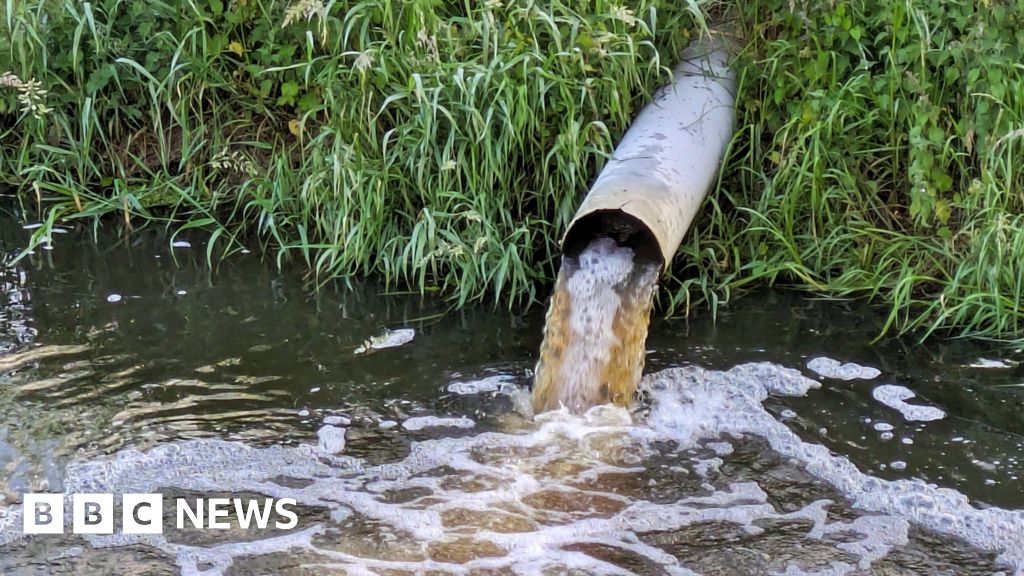The UK government has announced new measures aimed at making it quicker and easier to fine English water companies for spilling raw sewage into the environment. These proposals seek to introduce automatic fines for certain minor offences, as well as simplify the process of penalizing more serious breaches. The Environment Agency (EA), which regulates water companies, has faced criticism for being unable to effectively enforce existing rules, despite extensive monitoring revealing frequent sewage spills.
In recent years, the installation of monitoring equipment on all sewage outflows across England has exposed just how often untreated sewage is discharged into rivers and other water bodies. This data has shown a worrying pattern of rule violations, including spills during dry weather and instances where sewage treatment works released raw sewage before treating the legally required volume. Yet the EA has admitted it has struggled to respond adequately, sometimes attending only a fraction of reported pollution incidents and relying heavily on information provided by the water companies themselves.
Environment Secretary Emma Reynolds highlighted the need to strengthen enforcement powers, stating, “I want to give the Environment Agency the teeth it needs to tackle all rule breaking.” She emphasized that the proposed reforms would introduce swift and automatic penalties for offences such as failing to treat sewage to the required standards or not maintaining equipment properly. The government plans to launch a six-week public consultation on these proposals beginning on Wednesday, inviting feedback on the details of the new system.
Under the new plans, some minor breaches would trigger automatic fines of up to £20,000. Examples of such offences include failing to report significant pollution incidents within four hours, not submitting spill data accurately, or emergency overflow outlets discharging sewage more than three times in a year. By automating penalties for these frequent but previously under-enforced rule breaches, the government hopes to increase accountability and deter water companies from neglecting their responsibilities.
For more serious pollution offences, the current enforcement process remains unchanged. The EA must still take companies to court and prove guilt beyond a reasonable doubt—a high standard of proof used in criminal cases. Convicted companies could face substantial fines running into millions of pounds. However, the government is proposing to make it easier for the EA to act on some serious offences by lowering the burden of proof from “beyond all reasonable doubt” to “on the balance of probabilities,” a standard more common in civil cases. This change, already enshrined in the Water (Special Measures) Act passed in February 2025, would allow the EA to impose fines of up to £500,000 without needing to secure a criminal conviction.
The government anticipates that the new enforcement system could generate between £50 million and £67 million annually in fines. Importantly, officials have stated that these costs will be borne by company shareholders, not passed on to customers through higher water bills. This approach aims to ensure that financial penalties act as a real deterrent, encouraging firms to invest in better infrastructure and pollution control measures rather than simply treating fines as a cost of doing business.
Water companies have responded positively to the proposals. A spokesperson from trade body Water UK acknowledged that holding companies accountable for environmental failures is appropriate and necessary. However, environmental campaigners argue that even the proposed maximum fines are insufficient to change the behaviour of large water firms. James Wallace, CEO of the campaign group River Action, expressed frustration, saying, “Fines of £500,000 are pocket change to billion-pound companies like Thames Water. Higher penalties and urgent, wholesale reform are essential to prevent negligent firms polluting our rivers and short-changing their customers.”
The controversy over sewage spills has grown in recent years, fueled in part by investigations from BBC News. These reports revealed thousands of incidents where raw sewage was discharged during dry weather conditions, and occasions where treatment plants failed to process sewage volumes as legally required before releasing it. The investigations also showed the EA’s limited enforcement activity, with the agency attending just 13% of reported pollution incidents. This gap between monitoring data and enforcement has led to calls for stronger regulatory powers and more transparency.
The government’s six-week consultation will seek public input on which specific offences should be subject to automatic fines and what the appropriate penalty levels should be. It is an opportunity for stakeholders—from environmental groups to water companies and consumers—to influence how the new rules are crafted. The aim is to build a system that balances swift, effective punishment for persistent minor violations with the capacity to pursue serious offenders through the courts.
Ultimately, the government hopes these reforms will drive a cultural shift within the water industry, encouraging companies to prioritize pollution prevention and invest in infrastructure

